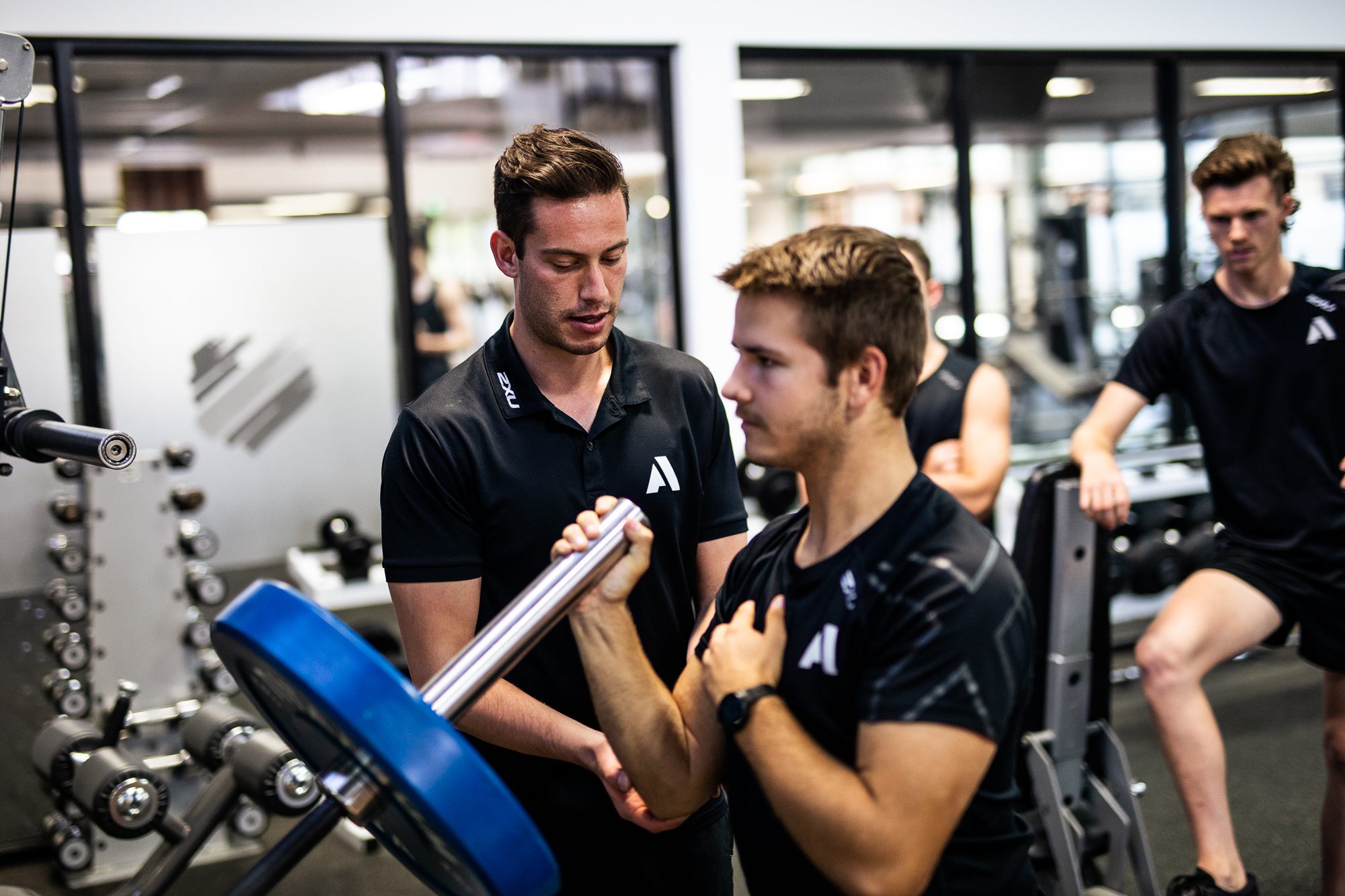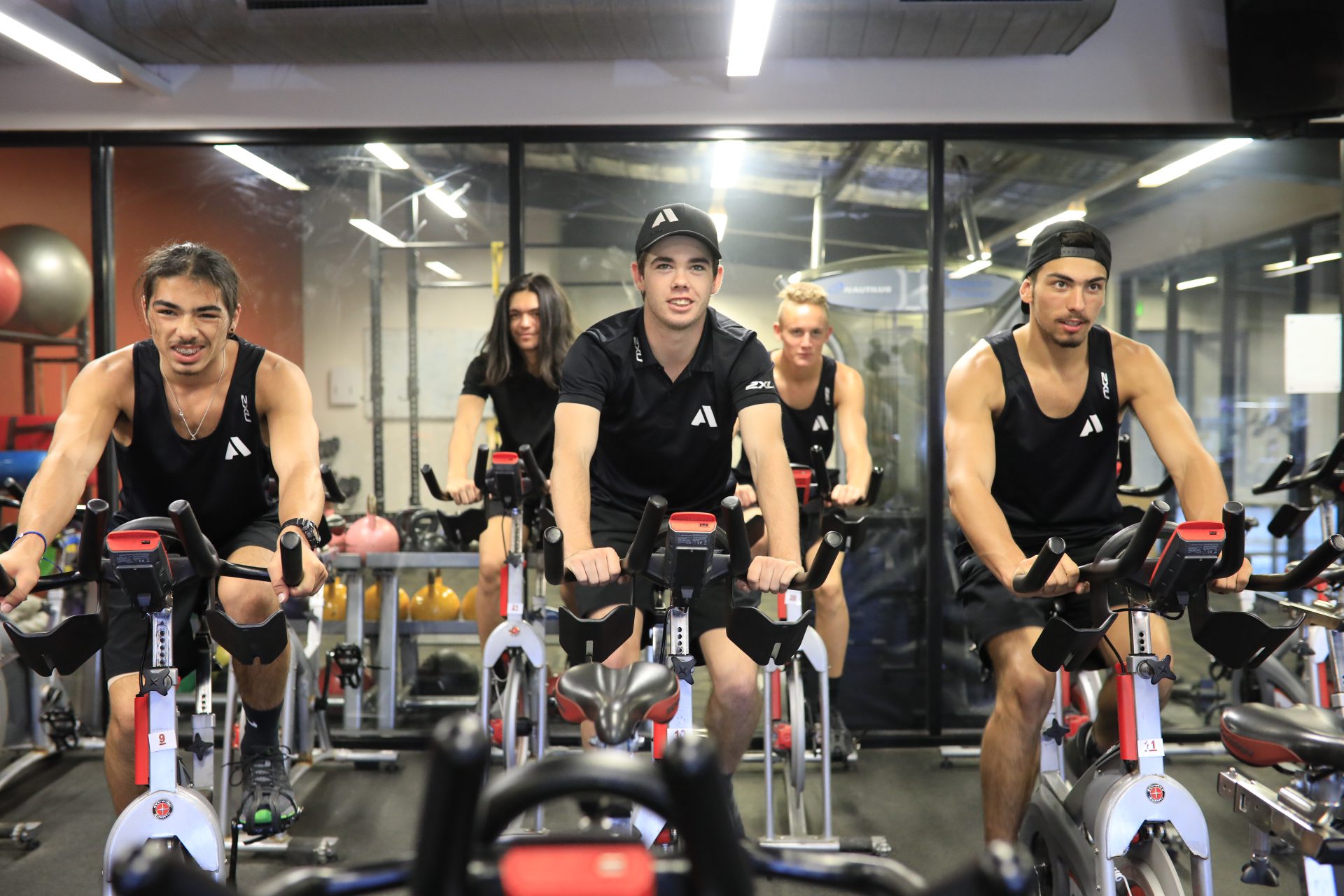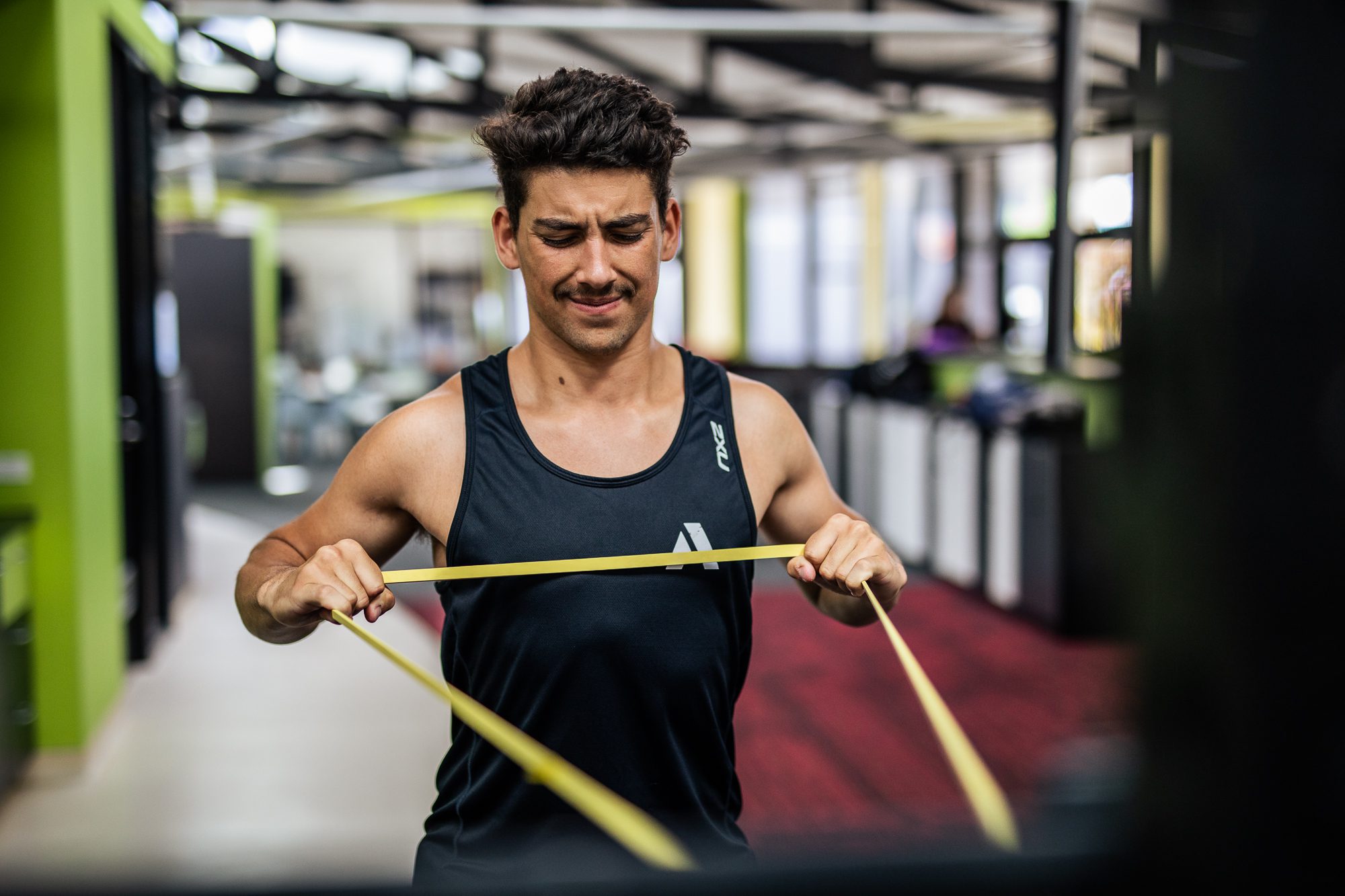Recovery plays one of the most important roles in an athlete’s overall improvement and performance in sports.
At The Academy, we use the financial analogy about “savings and spending” to help our students understand the influence recovery and rest days have on the bigger picture: their gameday performances.
Every human body has a total physical capacity available to them. This capacity is made up of a number of different components, including endurance, strength, and speed, just to name a few. If we imagine this total capacity as a bank account, every time we train or compete, we “withdraw” funds from this bank account to complete the session. If there are no future “deposits” back into the account, you will very quickly run out of money (fatigue) or even go into debt (overtraining).
When participating in physical activity, there is always a cost. More strenuous exercise (e.g. games/competition) will often have a higher cost compared to general exercise or training. Also, some activity may require different types of costs (endurance, strength, speed, etc.) depending on the demands of the session, but that still always accumulates to a total “withdrawal” from the body’s account.

While training and playing sport allows for the growth of these capacities (i.e. get stronger, develop a bigger aerobic or anaerobic capacity, etc.), these capacities and the body’s overall physical capacity will not grow unless adequate recovery takes place to allow for these “deposits” to be processed. In other words, your body will not adapt to the training stress and stimulus placed on it, leaving you physically and mentally in a state of constant fatigue.
So what are the best ways to make these “deposits” and replenish the funds as quickly as possible?
Students at The Academy learn to take an active approach to recovery. While there is some scientific evidence to support things such as water therapy, stretching and foam rolling, The Academy addresses the key pillars when it comes to recovery and regeneration, including:
Sleep: To function effectively and efficiently, humans are required to get at least 8 hours of good quality sleep a night. For adolescents, the number increases to around 10 hours. Athletes who sleep less than 8 hours a night are at a ~1.7 times higher risk of getting injured compared to athletes who sleep greater than 8 hours.
The Academy students are educated on this and the following simple strategies to ensure they get at least 8 hours of sleep a night.
- Getting into a consistent sleep routine (i.e. going to bed and waking up at the same time every day).
- Minimising screen time approximately 2 hours before planning to go to bed.
- Setting up a good sleep environment by reducing light and noise present in the room.
Nutrition: Diet is a HUGE topic and is largely based on an individual’s requirements. Generally speaking, athletes should be consuming a good balance of carbohydrates, protein and fats through whole foods. At The Academy, we have guest AFL dieticians come in to speak to our students about diet and nutrition.
Hydration: If you’re thirsty, you’re already dehydrated. Being in a stage of dehydration reduces muscle function, cognitive ability and reaction time, and places you at an increased risk of injury. A general rule of thumb is for every kilogram of body weight lost during physical activity, 1.5kg of fluids should be consumed to avoid the risk of dehydration. Outside of physical activity, we should be consuming around 2 litres of water per day, consuming it regularly over the course of the day.

Movement: Every Monday, The Academy students participate in a range of recovery sessions, including low intensity sprint technique sessions; stationary bike sessions; or mobility and movement sessions done on land or in the water. The aim for these sessions is to re-introduce light movement back into the body, promoting blood flow and circulation to remove any residual fatigue from the weekend’s game.
Being on top of your recovery, particularly by getting 8 hours of sleep a night; eating a well balanced diet; and staying hydrated, is critical in improving your sports performance.
Preparation will always dictate your performance!
To learn more about The Academy’s recovery philosophy and practices, register to attend an upcoming Information Session at www.theacademy.com.au/information/


